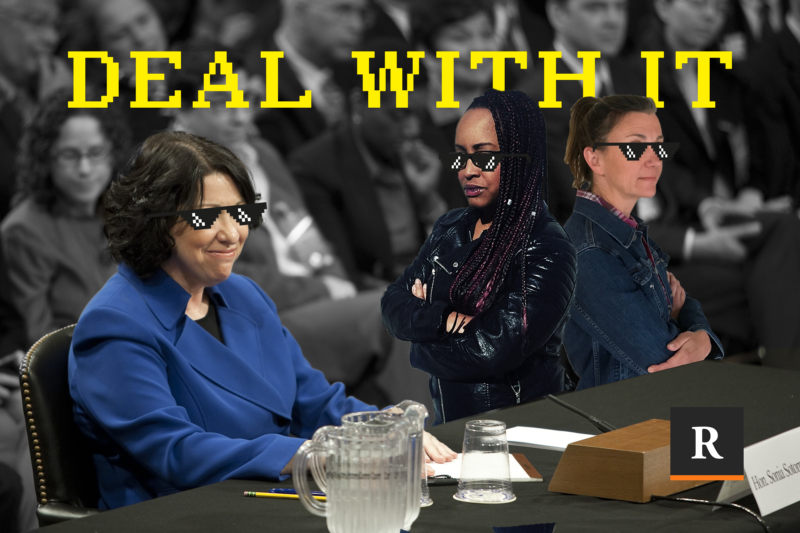Boom! Lawyered: Sonia Sotomayor Is an Absolute Boss
When it comes to favorites on the Supreme Court, Justice Ruth Bader Ginsburg gets a lot of love. And it’s deserved! But in the latest episode of Boom! Lawyered, Rewire.News legal experts Jessica Mason Pieklo and Imani Gandy explain why someone else is deserving of the same—and possibly even more—love: Justice Sonia Sotomayor.

Subscribe in Stitcher Follow us on Soundcloud RSS Feed Episode Archive
When it comes to favorites on the Supreme Court, Justice Ruth Bader Ginsburg gets a lot of love. And it’s deserved! But in the latest episode of Boom! Lawyered, Rewire.News legal experts Jessica Mason Pieklo and Imani Gandy explain why someone else is deserving of the same—and possibly even more—love: Justice Sonia Sotomayor.
An edited excerpt:
Jess: As she’s drawing that out in her dissent, she’s pulling from all sorts of really great Black thinkers and advocates and activists. She’s citing Michelle Alexander and Ta-Nehisi Coates, and this is an important thing. Yes, it’s a dissent, and a dissent doesn’t have the force of law, but a dissent is still organized around a key judicial idea. And Justice Sonia Sotomayor builds a record with citation to other sources than white folks talking about white law, basically, right?
Imani: Right! Right.
Jess: This is a big deal because other attorneys, other judges can look back on this. This is how the law actually changes. This is how the perspective in the context of the law actually changes—by drawing from the not-usual sources. This is a really big deal.
Imani: It’s such a big deal. I mean, Michelle Alexander’s book, The New Jim Crow, talks a lot about the mass incarceration and the prison industrial complex. Ta-Nehisi Coates’s landmark article on reparations that was published in the Atlantic a few years ago goes point by point about how Black people have ended up in a situation where they are being over-policed, where they are being segregated into neighborhoods where white flight has taken a toll on these neighborhoods. The fact that those sources are now enshrined in the Supreme Court jurisprudence is extremely important because it’s more likely that judges and lawyers, that predominately white judges and lawyers, may be reading those sources. And the fact that there might be some white lawyer somewhere who picks up Michelle Alexander’s book, The New Jim Crow and reads it and maybe learns something about the way that Black people are treated in this country is a really positive thing to come out of all of this.
Jess: It is. I think that might be one of the reasons why I was so disappointed that Justice Ginsburg didn’t sign on to that portion of the dissent—because she didn’t.
